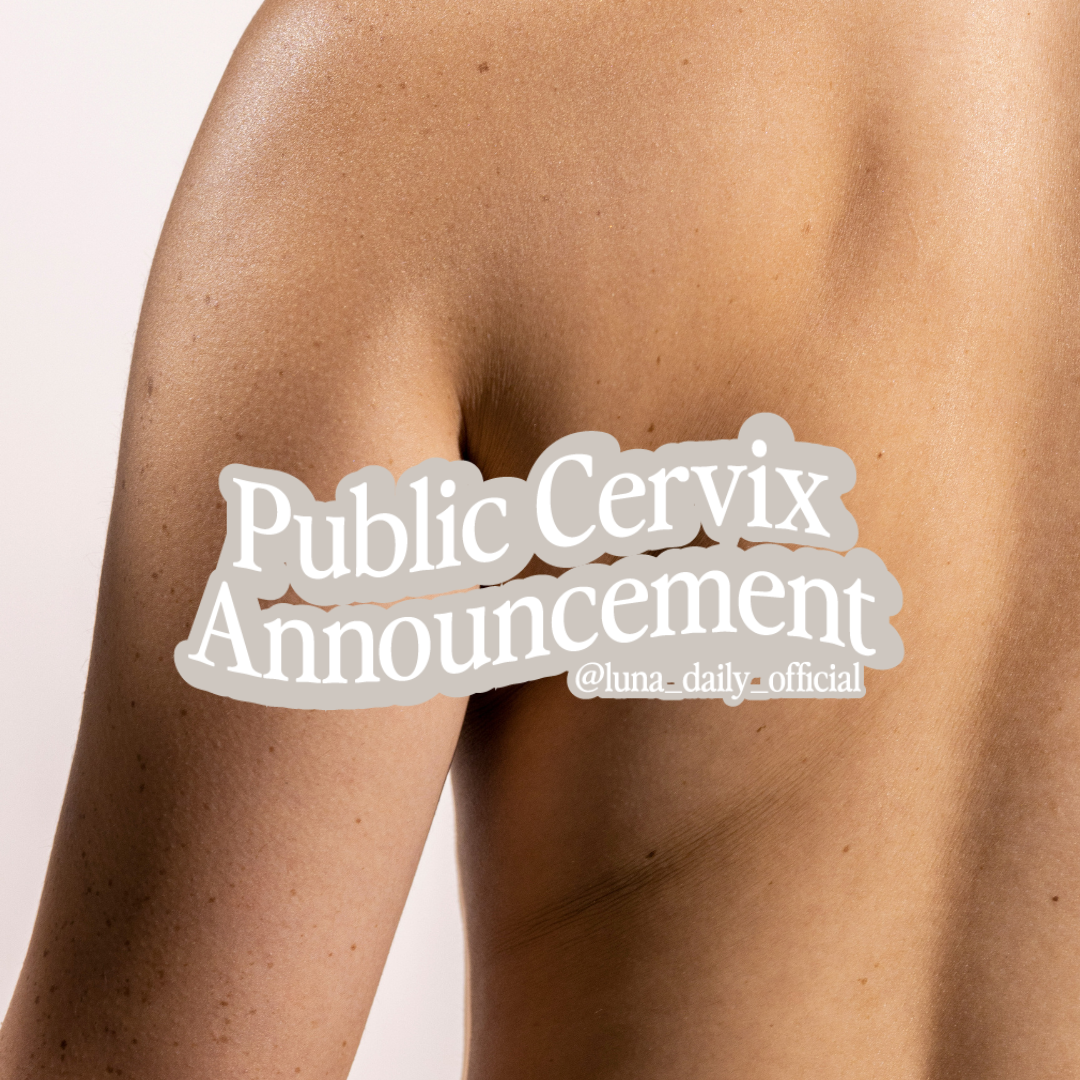At Luna Daily, we’re passionate about women being properly informed about gynaecological issues - because knowledge is power. By educating ourselves, we can ensure we all know what signs and symptoms to look out for, and understand the importance of going to your scheduled cervical smear test.
There are 5 types of gynaecological cancers (cervical, vulva, womb, vagina, ovarian) Sadly, gynaecological cancers have some of the worst outcomes for women with a devastating mortality rate of 37%. 21 women will die of a gynaecological cancer today, and 57 women will be diagnosed.*
Remember, for more information always ask a healthcare professional. And if you’re ever worried about something, get it checked; embarrassment isn’t life threatening, but cancer is.
The Cervix 101
The cervix is part of the female reproductive system. The female reproductive system is made up of the:
vagina
womb (uterus)
cervix
ovaries
fallopian tubes.
Cervical cancer and symptoms
Cervical cancer is cancer of the cervix (also known as the neck of the womb), which connects the womb and vagina.
Cervical cancer is the #1 form of cancer in women under 35 years old in the UK*
1 in 3 women due for their cervical screening have not gone (a leading reason being embarrassment)**
99.6% of cervical cancers can be prevented by cervical screening (smear tests)*
Cervical cancer symptoms:
Some symptoms of cervical cancer are not obvious, so it’s vital to get your cervical smear when you are due as that’ll pick up on any abnormalities.
The most common symptom of cervical cancer is bleeding from the vagina at times other than when you are having a period. For example between periods, after or during sex, or at any time if you are past your menopause.
Some women also experience:
Vaginal discharge that smells unpleasant
Discomfort or pain during sex.
If you have any of the symptoms listed above, be sure to see your doctor – particularly if:
They are not normal for you
They are persistent
There are repeated episodes
They do not go away
Most women with symptoms like these do not have cancer, but being aware of what the symptoms are means you’re more likely to spot if something’s amiss - and early diagnosis saves lives.
Risk factors
Cervical cancer is commonly caused by a transmitted infection called human papillomavirus (HPV) which is transferred through skin-to-skin sexual contact, and common for nearly all women to come into contact with at some stage during their adult life.
Women with a weakened immune system and those who have had a large number of children are also more likely to get cervical cancer. All girls aged 12 or 13 in the UK are routinely offered the HPV vaccine at school. These vaccines protect against the strains of HPV that are most likely to cause cervical cancer.
Sources
The Lady Garden Foundation
Jo’s Cancer trust
**https://digital.nhs.uk/news/latest-news/decrease-in-number-of-people-having-cervical-screening-tests-in-2020-21-new-statistics-show




